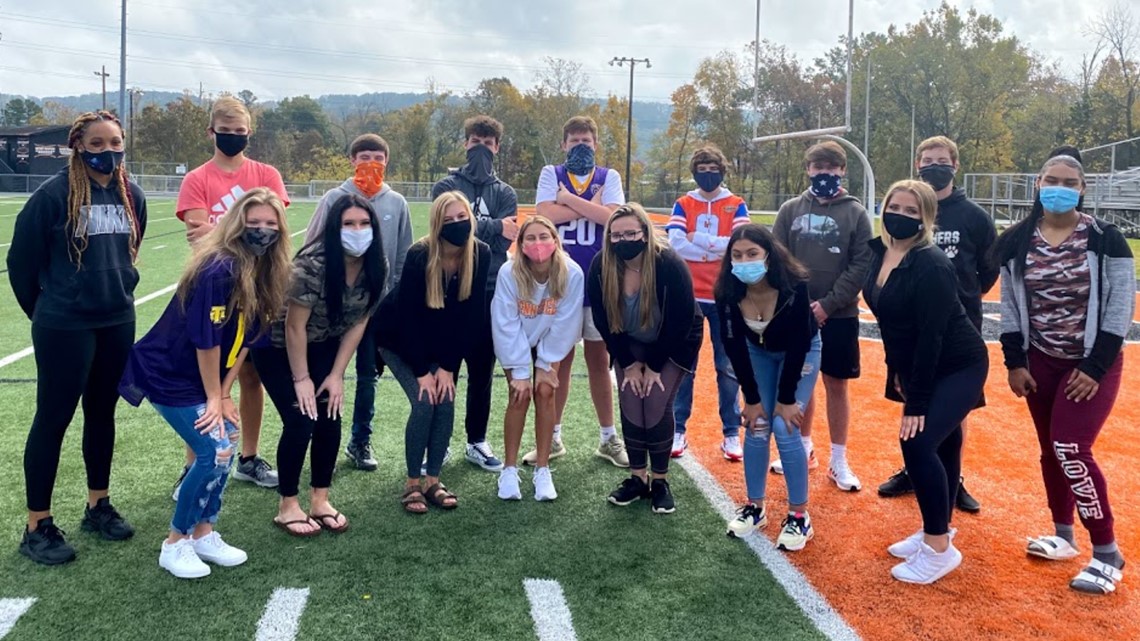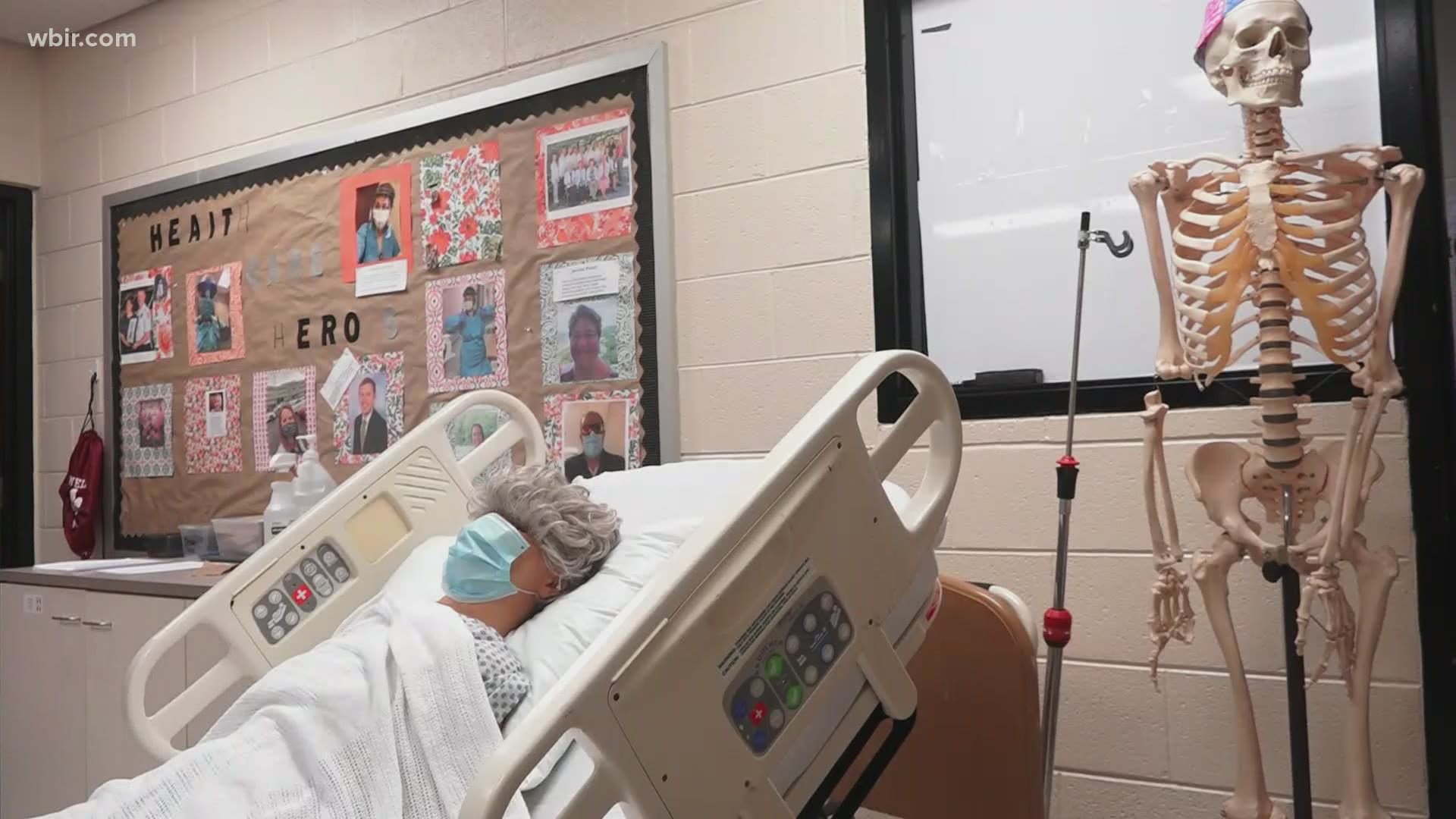KNOX COUNTY, Tenn. — Powell High School's rehab careers class has a slew of new equipment.
"We have crutches and stuff, we have canes," said sophomore Isaac Johnson, giving a tour of the classroom.
New yoga mats, CPR kits, physical therapy bands and balance balls pack the back closet, now labeled the "Kinesiology Center."
Next to a skeleton lies their new classmate in a hospital bed donated by Tennova.
"This is Granny, we do a lot of our practices and stuff like we learned how to get people out of the bed," said Johnson.
The fake patient and real equipment come from a $7,000 TeacherPreneur grant from the Knox Education Foundation. Health science teacher Nicki Roach applied for the grant because she saw something that needed to be taught.


"I think it's important not only for the students and the athletes but also for the teachers to understand and recognize signs and symptoms of concussion," she said.
Roach is putting an emphasis on the long term impacts of brain injuries and how to care for them.
"I could end up as a quadriplegic, a paraplegic, bed bound, all of those things," she said. "Teaching these students those skills on how to care for a patient in that situation I think is important as well."
She hosted a virtual "Brain Week," where her students taught the school about concussions, brain bleeds and seizures via Twitter.
Research and statistics from the UPMC Sports Medicine Concussion Program show that one-in-five high school athletes will suffer a concussion each year.
"You break a leg and it's noticeable so everybody cares about that a lot more, but with a concussion, people can't see that," said senior Kaylin Morton.
She's had a concussion before and wants her classmates to take brain injuries seriously.
"Here, having a football team and so many different sports and stuff, I feel like we need to know how to spot that, how to treat it, and how to help it," said Morton.
Roach said she wants students to be ready for anything as future healthcare providers.
"Our school community really has learned something, and hopefully they'll learn to make better choices and think about the consequences," she said.
Roach hopes to hold Brain Week again next year.

